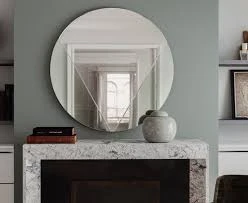

Designer Glass for Windows A Blend of Aesthetics and Functionality
In the world of architecture and interior design, the choice of materials plays a pivotal role in determining the overall ambiance of a space. Among these materials, designer glass has emerged as a popular choice for windows, combining innovative aesthetics with unparalleled functionality. This article explores the various facets of designer glass for windows, highlighting its advantages, types, and its impact on modern architecture.
Aesthetics and Customization
One of the most appealing aspects of designer glass is its ability to enhance the visual appeal of a building. With advancements in technology, glass can now be produced in a multitude of colors, patterns, and textures. From frosted and etched designs to vibrant stained glass and patterned laminates, the possibilities are nearly limitless. Designers can customize glass to reflect the theme of the building, whether it be a sleek modern office space or a charming cottage.
Additionally, designer glass can serve as a form of artistic expression. Some artists and manufacturers collaborate to create unique glass artworks that transform ordinary windows into stunning focal points. This not only enhances the aesthetic appeal but also adds value to the property, making designer glass an attractive option for homeowners looking to elevate their spaces.
Functionality and Efficiency
Beyond aesthetics, designer glass offers practical benefits that cater to contemporary needs. One significant advantage is energy efficiency. Modern designer glass options often incorporate advanced technologies such as double or triple glazing, low-emissivity (Low-E) coatings, and argon gas insulation. These features help reduce energy consumption by minimizing heat loss in winter and keeping interiors cool during summer, thus lowering heating and cooling costs.
Furthermore, designer glass can enhance privacy without sacrificing natural light. Options like frosted or tinted glass allow ample daylight to filter through while preventing outsiders from seeing in. This balance of privacy and brightness is particularly desirable in urban environments, where buildings are often in close proximity to each other.

Safety and Security
Safety is another crucial factor when considering windows, and designer glass has made significant strides in this area. Laminated and tempered glass options are increasingly prevalent, offering heightened resistance to breakage and impact. This not only protects against accidents but also enhances security by making it more difficult for intruders to gain access to a home or business.
Moreover, designer glass can be combined with smart technologies to create a more secure environment. For example, integrating window sensors and alarms can alert homeowners to any unauthorized entry, providing peace of mind in addition to aesthetic appeal.
Sustainability and Environmental Impact
In today’s environmentally conscious world, sustainability has become a key consideration for architects and designers. Many manufacturers of designer glass are striving to create products that are both beautiful and eco-friendly. This includes using recycled materials in their manufacturing processes and producing glass that can be easily recycled at the end of its life cycle.
Additionally, energy-efficient designer glass contributes to a building's overall sustainability. By improving insulation and reducing the reliance on heating and cooling systems, these glass products help lower a building's carbon footprint, making them a responsible choice for environmentally-minded consumers.
Conclusion
The trend of using designer glass for windows is not just a passing fad; it represents a significant shift in how we perceive windows in architecture. By marrying aesthetics with functionality, designer glass opens up new possibilities for creative expression while addressing practical concerns such as energy efficiency, safety, and sustainability. As the demand for innovative building materials continues to rise, designer glass will undoubtedly remain at the forefront, influencing the future of architectural design and interior aesthetics. Whether you are looking to create a stunning visual statement or enhance the practicality of your space, designer glass for windows offers a remarkable solution that caters to the needs of modern living.